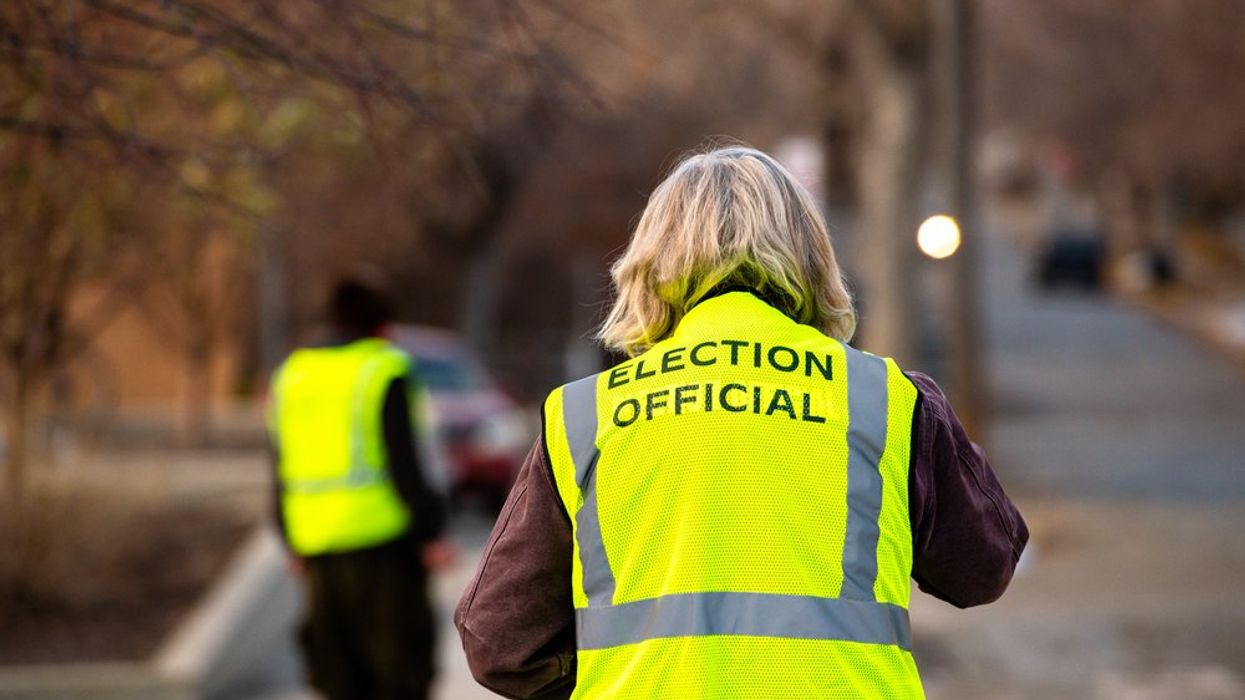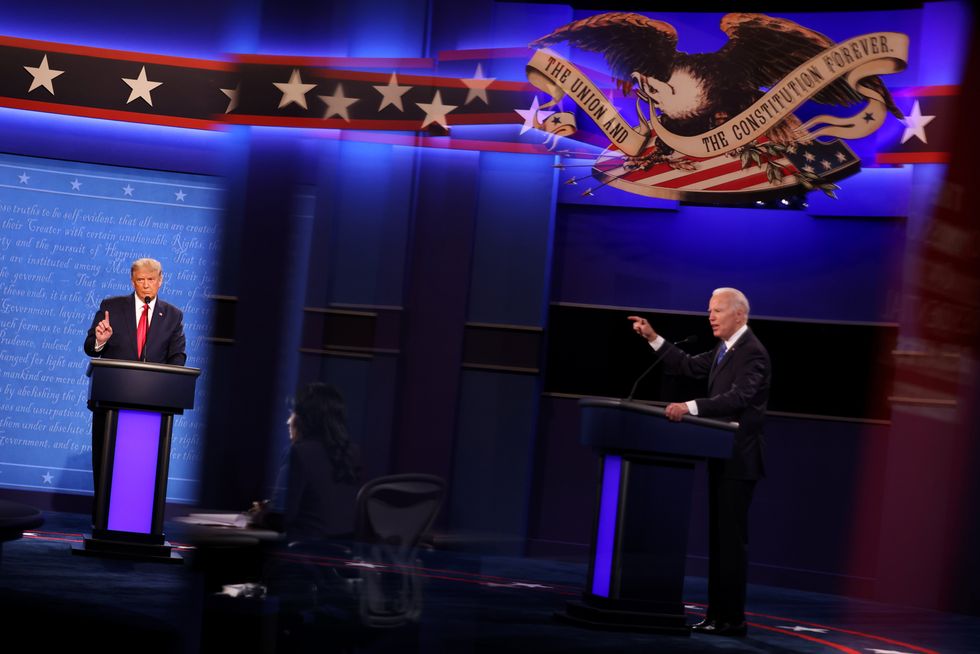'Threats and harassment' are causing America's West to bleed election officials: report

Since the turmoil of the 2020 election, where numerous county election departments faced recalls, vote challenges and even threats of violence, more than half of Americans in the Western United States are served by new election officials — because so many experienced ones have left.
And those election officials who left — often because of harassment — took with them more than 1,800 years of combined experience, leaving new civil servants with a steep learning curve to support complicated voting processes, often with little federal support, according to a new report from bipartisan political reform group Issue One.
“This exodus of election officials isn't happening in a vacuum and isn't happening out of the blue,” said Michael Beckel, research director for Issue One. “There has been a concerted and coordinated campaign of harassment against many election officials.”
POLL: Should Trump be allowed to run for office?
Issue One researched 11 Western states — Arizona, California, Colorado, Idaho, Montana, Nevada, New Mexico, Oregon, Utah, Washington and Wyoming — and found that more than 160 chief election officials left their positions after November 2020.
Overall, about 40 percent of election officials in the West are new since the last presidential election, according to the report.
In Arizona, a swing state where some of the most pitched election-related drama occurred following the 2020 election, the shift is even more extreme: 80 percent of counties have installed a new chief local election official during the past three years, the Issue One report states.
And in both Arizona and Nevada, almost all of the states’ voters will have their 2024 elections run by someone different than in 2020.
The “onslaught of threats, harassment, conspiracy theories and increased work loads” have helped lead to this turnover, the report states. Such turnover, meanwhile, is costly to taxpayers because it’s “expensive to search for, hire, and train new staff,” the report continues.
“One of the surprising things was there has been high turnover not only in battleground states like Arizona and Nevada where election officials have been under the microscope and there have been so many high profile cases of threats and harassment,” Beckel said.
ALSO READ: Prison playbook: How Trump could run his campaign – and the nation – from behind bars
While different states have different numbers of election officials — take Michigan and Wisconsin, where there are thousands — the exodus seen in the West is representative of a broader national trend.
“This shows that this is an issue facing communities across the country, that this exodus of election officials isn't isolated to battleground states or battleground counties. It's really affecting the profession as a whole,” Beckel said.
Neal Kelley spent almost 18 years as the registrar of voters in Orange County, Calif., the fifth largest county in the country before retiring in March 2022. He had plans to retire in 2020, but he was asked to stay on another year to help with the recall election involving California Gov. Gavin Newsom (D), he said.
“I would say there was a lot more conflict probably in the last few years that I was there than in the previous 15,” Kelley said.
Across the country, election officials such as Arizona election administrator Leslie Hoffman have reported experiencing heckling at public meetings, threatening phone calls and online harassment, The 19th reported.
“It wasn't like that was the catalyst for me leaving, but I certainly wouldn’t have hung around absent my plan to retire,” Kelley said.
Since November 2020, the typical number of years of experience held by election officials in the West fell from about eight years to about one year — and that lack of institutional knowledge has contributed to a lack of talent retention, Issue One reported.
“If anyone told you that, ‘oh, they feel comfortable after a year or two,’ that's baloney because it really takes I would say a good five to seven years to get your sea legs just because of the dynamics of elections and the laws and regulations, all the things that go along with it, plus the political environment,” Kelley said. “You need that knowledge to survive the treacherous environment because it's not just the national politics, but it’s the local, too.”
This election administration brain drain comes as it's becoming increasingly plausible that the two major party presidential candidates of 2020 — Democrat Joe Biden and Republican Donald Trump — will face each other in a 2024 rematch, even amid Trump's tsunami of legal troubles.
 Then-President Donald Trump and then-Democratic presidential nominee Joe Biden participate in the final presidential debate at Belmont University on October 22, 2020 in Nashville, Tennessee. The two men could face a rematch in 2024. Justin Sullivan/Getty Images
Then-President Donald Trump and then-Democratic presidential nominee Joe Biden participate in the final presidential debate at Belmont University on October 22, 2020 in Nashville, Tennessee. The two men could face a rematch in 2024. Justin Sullivan/Getty Images
Many of the most extreme examples of threats and harassment of election workers have come from Trump supporters, although the recipients of the threats are Democrats and Republicans alike.
The Department of Justice has prioritized the protection of election workers since Trump's loss in 2020. But Congress can be the answer to the continuing challenges local election officials face by helping provide more funding and protection to public servants who work on election matters, advocates said.
“Half of the ballot that an election official handles is federal … and yet we don't have consistent federal funding,” Kelley said. “This is a problem. You've got president, the Senate, House contests on a ballot, and that you're not getting any reimbursement for, so I think that's something that really needs to be addressed.”
The Issue One report recommends that “in order to curb this exodus, lawmakers and policymakers in Washington, D.C., and across the country must step up to show election officials that they have their backs in the face of threats and harassment. They can do this by strengthening protections and fully funding our critical elections infrastructure to ensure that all voters can safely and securely make their voices heard in our elections.”


